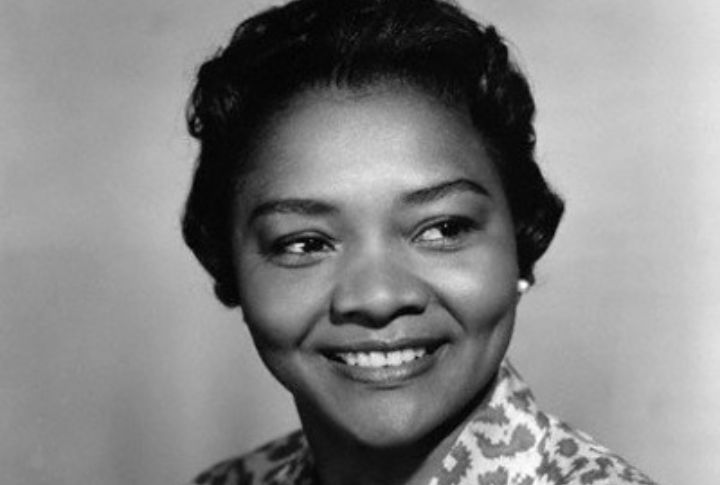
Though history may forget those women, the screen once shimmered with the brilliance of African-American talent. Many Black actresses carved paths through Hollywood’s barriers and created legacies of resilience and strength in a time of prejudice. However, they did not find much fame and attention, which led to them slipping away from the limelight. It’s time to remember and celebrate those 20 actresses who deserve it.
Theresa Harris

Long before roles were fair, Harris worked relentlessly. She shone beside legends in over 100 films yet was seldom credited. Still, her presence was unmistakable, which proved that Black actresses could command both elegance and complexity.
Fredi Washington

She played Peola in “Imitation of Life” in 1934 and delivered a performance layered with conflict and dignity. With both European and Black ancestry, Washington embraced her African American heritage in Hollywood, but her fame didn’t last long.
Nina Mae McKinney

Often called “The Black Garbo,” McKinney dazzled in the 1929 hit “Hallelujah!” Despite gaining international acclaim, Hollywood sidelined her. She turned to Europe, where her talent met more appreciation, though not the acknowledgment she truly deserved.
Ethel Waters

Ethel Waters is a great example of how a woman can rise from poverty and become the first Black actress to be nominated for an Emmy. Her roles in “Pinky” and “Beulah” made history, yet her contributions remain overlooked by mainstream Hollywood.
Juanita Moore

Nominated for an Oscar for “Imitation of Life” in 1959, Moore brought raw emotion and grace to the role of Annie. Moreover, she quietly mentored young Black performers and left behind a legacy as noble off-screen as on it.
Dorothy Dandridge

Dandridge became the first Black woman nominated for Best Actress at the Oscars for her role in “Carmen Jones.” She was an icon to her community with her onscreen presence. Her brilliance remains iconic, though Hollywood failed to sustain her stardom.
Roxie Roker

Famous for her role in “The Jeffersons,” Roker portrayed one of the first interracial TV couples. Beyond her iconic role, she worked in theater and activism, yet her contributions are now overshadowed by those of her son, Lenny Kravitz.
Gail Fisher

As Peggy on “Mannix,” she became the first Black woman to win an Emmy for drama. Even with a groundbreaking performance, she rarely found major roles afterward. She is a striking reminder of how Hollywood rewarded Black actresses and then rejected them.
Marpessa Dawn

An African American in France, she starred in 1959’s Cannes-winning classic “Black Orpheus.” Even after gaining adoration from all over Europe, Hollywood offered her nothing. Her beauty and talent were global, but sadly, her legacy faded at home.
Diahann Carroll

“Julia” wasn’t just a TV show. It was a revolution. Carroll’s portrayal of a professional Black woman broke television ground. Despite her Tony and Golden Globe wins, her pioneering work is undercelebrated in broader Hollywood narratives.
Beah Richards

The name Beah Richards seldom echoes through the halls of film history, even though she earned an Oscar nomination and two Emmys. She brought a quiet and thunderous performance in “Guess Who’s Coming to Dinner” in 1967.
Barbara McNair

A singer first, McNair broke barriers as a glamorous Black lead in an episode of “Mission: Impossible” in 1971 and “They Call Me Mister Tibbs!” Mainly a singer, McNair’s glamorous roles were dimmed by limited opportunities in Hollywood.
Frances E. Williams

Williams wasn’t just an actress but also an activist. Appearing in “The Autobiography of Miss Jane Pittman” and “Roots,” she balanced civil rights work with acting, often sacrificing career advancement for social justice. Her courageous activism outlasted her screen time.
Carmen De Lavallade

You might remember her as a dancer, but De Lavallade was also an actor with poise on stage and in films. Her artistry was fluid and groundbreaking. She was always inspiring, yet she was rarely included in mainstream retrospectives.
Clarice Taylor

Remembered as Grandma Huxtable, Taylor had a long career on the stage and the screen, including “Sanford and Son” and “Play Misty for Me.” She radiated composure and warmth. Even then, Hollywood rarely gave her space to shine in leads.
Rosalind Cash

Commanding the screen alongside Charlton Heston in “The Omega Man” wasn’t just rare—it was revolutionary. Cash brought depth to sci-fi and later earned an Emmy nod for “Go Tell It on the Mountain.” Despite her range, Hollywood never gave her the spotlight she deserved.
Alaina Reed Hall

Hall’s charm and talent deserve a bigger spotlight. She brought heart with her acting in “227” and kindness in “Sesame Street.” Later, she played roles that shaped generations, but her legacy often gets buried beneath more prominent co-stars.
Madge Sinclair

Sinclair stole every scene with her performance in “Coming to America” and “Roots.” Her regal onscreen presence earned her several Emmy nominations. While not a household name, her roles remain some of the most iconic in Black cinema.
Vonetta McGee

McGee shone brightly in “Blacula” and “The Eiger Sanction,” and she was just magnetic. The actress often spoke out about systemic racism in Hollywood. A stance that may have cost her greater success. So, her courage is as notable as her talent.
Ketty Lester

Best known for her haunting ballad “Love Letters,” Lester also starred in the series “Little House on the Prairie” and “Blacula.” Despite her talent across genres, she’s rarely mentioned among versatile Black performers who shaped television and film.

Comments
Loading…